Keynotes & Plenary Roundtables
2023 Annual Firth Lecture - Irreconciliation and its Divergences
Nayanika Mookherjee (Durham University)
In Denktagebuch (Thought Diaries, 1950-1973) Hannah Arendt wrote that acts which cannot be forgiven are beyond punishment and hence cannot be reconciled to. In this annual 2023 Firth lecture, I draw from Arendt to further theorize and extend the concept of irreconciliation and reflect on the lessons that we can learn from it. Following Raymond Firth’s focus on individual divergences as a source of social change rather than social organizations, I reflect critically on the interdisciplinary scholarship on reconciliation, apology and forgiveness and theorise irreconciliation as a less examined lens of analysis through which such change can be aspired for. Most post-conflict reconciliatory exercises make it incumbent upon survivors to forgive and seek closure as an exhibition of ‘moving on’. Rather than being in opposition to ‘peace’, irreconciliation instead allows us to interrogate the status quo by refusing to forgive endemic impunities, particularly in the aftermath of staged processes of justice and absence-presence of the rule of law. Drawing from Firth’s exposition on social organisation and behaviour, his work on the Naval Intelligence Report and kinship in Europe, I will try to explore the political and psychic potentials that might lie dormant in the phenomenon of irreconciliation. As an ethnographically less examined phenomenon (which doesn’t just provide critique), I argue that irreconciliation allows an important examination of the rule of law within processes of unresolved genocidal injustices, debates relating to the ‘enslaved’, Black Lives Matter, institutional responses and might offer some possibilities for an engaged anthropology in these troubled times.
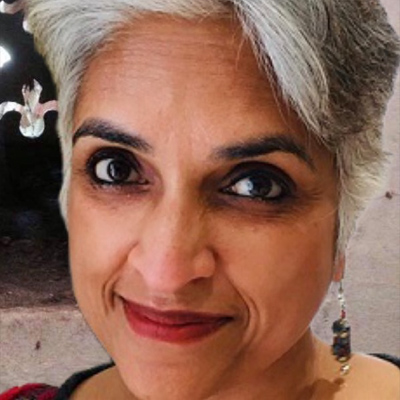 Nayanika Mookherjee (FRSA) is a Professor of Political Anthropology and Co-Director of the Institute of Advanced Studies in Durham University. Based on her widely acclaimed book The Spectral Wound: Sexual Violence, Public Memories and the Bangladesh War of 1971 (2015 Duke University Press), in 2019 she co-authored (with a Bangladeshi visual artist Najmunnahar Keya) a set of guidelines, graphic novel and animation film Birangona: Towards ethical testimonies of sexual violence during conflict and received the 2019 Praxis Award from the Washington Association of Professional Anthropologists. The guidelines and graphic novel have fed into the Murad Code (named after the Yazidi sexual violence survivor and 2018 Nobel Peace Prize winner Nadia Murad) developed by the Prevent Sexual Violence Initiative of the UK government. Her focus on ethics emerges from her own research as well as being an Ethics officer of the ASA (2007-2012) when she updated the ASA ethics code in consultation with the members.
Nayanika Mookherjee (FRSA) is a Professor of Political Anthropology and Co-Director of the Institute of Advanced Studies in Durham University. Based on her widely acclaimed book The Spectral Wound: Sexual Violence, Public Memories and the Bangladesh War of 1971 (2015 Duke University Press), in 2019 she co-authored (with a Bangladeshi visual artist Najmunnahar Keya) a set of guidelines, graphic novel and animation film Birangona: Towards ethical testimonies of sexual violence during conflict and received the 2019 Praxis Award from the Washington Association of Professional Anthropologists. The guidelines and graphic novel have fed into the Murad Code (named after the Yazidi sexual violence survivor and 2018 Nobel Peace Prize winner Nadia Murad) developed by the Prevent Sexual Violence Initiative of the UK government. Her focus on ethics emerges from her own research as well as being an Ethics officer of the ASA (2007-2012) when she updated the ASA ethics code in consultation with the members.
She has published extensively on anthropology of violence, ethics and aesthetics including editing volumes like ‘The Aesthetics of Nation’ (2011 with Christopher Pinney), ‘The Self in South Asia,’ (2013); Aesthetics, Politics and Conflict (2015 with Tariq Jazeel) and her recently edited volume is On Irreconciliation (2022). She has had fellowships with ESRC, Wenner-Gren Foundation for Anthropological Research, British Academy, Leverhulme and the Rockerfeller Foundation at Bellagio. She is finalising her manuscript Arts of Irreconciliation and funded by the British Academy she is carrying out research on war babies, conflict and transnational adoption. She did her BA (Honours) in Political Science from Presidency College (Calcutta University, India), and MA in Sociology and Anthropology from Jawaharlal Nehru University (JNU, Delhi, India) and her Phd in Social Anthropology from SOAS (University of London). She was in the Sociology department in Lancaster University before joining the Anthropology department in Durham in 2011.
Plenary Lecture, Dr Rochelle Burgess
The gifts that context give: Reflections on ethnographic encounters in Global Mental Health
Dr. Rochelle Burgess
Associate Professor in Global Health
Institute for Global Health, UCL
Discussant: Orkideh Behrouzan
In his critiques of mental health and psychiatry, Arthur Kleinman argued that ethnography and by extension – anthropology provided a route to the future of psychiatry – one that was able to take seriously the social and cultural dynamics of health and illness, and the perspective of multiple voices within the field. In writing Rethinking Psychiatry in 1985, he was hopeful on these points. Work by other anthropologists in this area, remains a critical platform for the unveiling of the ways in which mental health remains inextricable from our social worlds; because it is made manifest within relationships to society, culture, politics, and crisis.
This talk will reflect on my work as a non-anthropologist who is embedded within the discipline by virtue of my encounters with the social world as a scholar activist. The features of this practice can be organised under the umbrella of what I have called ethnographic encounters, which align with the principles anthropological traditions including engaged ethnography, and Patchwork ethnography in global mental health settings. Such encounters enable a taking of context seriously, which informs a critical interrogation of my work as it relates to wider social justice aims, and a purposeful engagement and alliance with citizens projects of survival and what they tell us about the limitations of our current practices in the global mental health field.
 Rochelle Burgess is a community health psychologist an Associate Professor in Global Health, at the Institute for Global Health at UCL. She Deputy Director of the UCL Centre for Global Non-Communicable Diseases, the founder and Director of UCL’s Global Network on Mental Health and Child Marriage. She is a Fellow of the Royal Society of Public Health and the Young Academy of Europe, a member of UK Trauma Council, among other affiliations.
Rochelle Burgess is a community health psychologist an Associate Professor in Global Health, at the Institute for Global Health at UCL. She Deputy Director of the UCL Centre for Global Non-Communicable Diseases, the founder and Director of UCL’s Global Network on Mental Health and Child Marriage. She is a Fellow of the Royal Society of Public Health and the Young Academy of Europe, a member of UK Trauma Council, among other affiliations.
As a community health psychologist, Rochelle is interested in the promotion of community-led approaches to health globally. For the past decade, she has focused largely on mental wellbeing and the experience of common mental disorders in contexts of adversity and is a leading voice in the emerging field of social interventions in Global Mental Health. She has led a range of projects that focus on the development of community mental health interventions (in South Africa, Colombia, the UK and Zimbabwe) and has contributed her qualitative, participatory and ethnographic methodological expertise to projects driving community-led responses to other health challenges, such as child health in Nigeria, multi-morbidity, and developing patient-centred outcomes for TB.
Plenary Roundtable
Methods for an Unwell World
Chairs: Jo Krishnakumar and Dr Nikita Simpson
Anthropological methods are undergoing a period of rapid innovation. On one hand, the Covid-19 pandemic and decolonisation movements have seen an undoing of geographic estrangement as the cornerstone of ethnographic enquiry. On the other, the movement toward sensory, embodied and artistic modes of research creation sees our field sites unbounded. In the wake of these transformations, new possibilities are opening up for the uses and applications of anthropological knowledge at grassroots level, in civil society, and in policy making. This round table asks - what do anthropological methods have to give to an unwell world? It brings together anthropologists working at the intersections of our academic discipline, and policy, activist and art worlds.
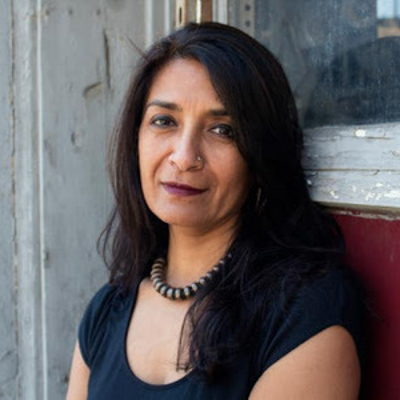 Nandini Sikand (they, she) is an anthropologist, filmmaker, dancer/choreographer, and Professor at Lafayette College. They are the author of Languid Bodies, Grounded Stances: The Curving Pathway of Neoclassical Odissi Dance (Berghahn Books, 2017) and are currently working on Visualizing the Thug(gee): Colonialism, Race and Criminality and a non-fiction collection of essays about parenting while brown.
Nandini Sikand (they, she) is an anthropologist, filmmaker, dancer/choreographer, and Professor at Lafayette College. They are the author of Languid Bodies, Grounded Stances: The Curving Pathway of Neoclassical Odissi Dance (Berghahn Books, 2017) and are currently working on Visualizing the Thug(gee): Colonialism, Race and Criminality and a non-fiction collection of essays about parenting while brown.
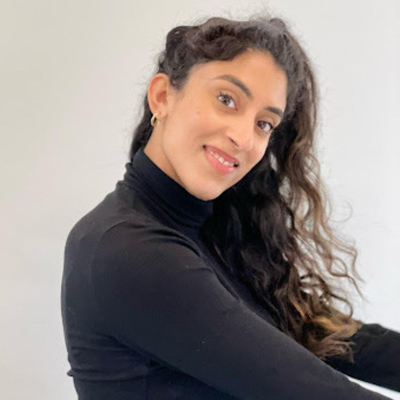 Anjana Bala is an LSE Fellow in Anthropology. Her research, based in Chennai, Tamil Nadu, explores material process of psychic experiences. She is also a dance artist and is interested in how bodies are transformed by space, place, and histories and how this impacts practices of movement.
Anjana Bala is an LSE Fellow in Anthropology. Her research, based in Chennai, Tamil Nadu, explores material process of psychic experiences. She is also a dance artist and is interested in how bodies are transformed by space, place, and histories and how this impacts practices of movement.
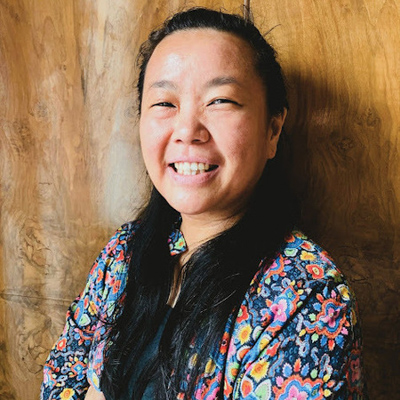 Chika Watanabe is Senior Lecturer in Social Anthropology at the University of Manchester. Her research and teaching interests are on development and humanitarianism, disaster preparedness, pedagogy, and play in the contexts of Japan, Myanmar, and Chile.
Chika Watanabe is Senior Lecturer in Social Anthropology at the University of Manchester. Her research and teaching interests are on development and humanitarianism, disaster preparedness, pedagogy, and play in the contexts of Japan, Myanmar, and Chile.
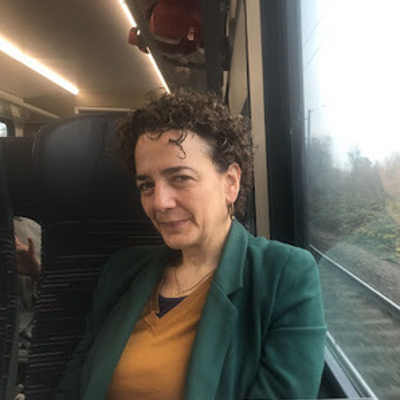 Yael Navaro is Professor of Social, Political and Psychological Anthropology at the University of Cambridge. She is the author of Faces of the State: Secularism and Public Life in Turkey (Princeton 2002) and The Make-Believe Space: Affective Geography in a Postwar Polity (Duke 2012), and co-editor of Reverberations: Violence Across Time and Space (UPenn 2021).
Yael Navaro is Professor of Social, Political and Psychological Anthropology at the University of Cambridge. She is the author of Faces of the State: Secularism and Public Life in Turkey (Princeton 2002) and The Make-Believe Space: Affective Geography in a Postwar Polity (Duke 2012), and co-editor of Reverberations: Violence Across Time and Space (UPenn 2021).
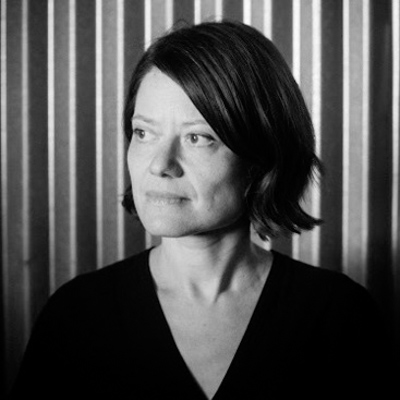 Marina Peterson is professor of anthropology at the University of Texas at Austin. Her work attends to elemental forces and shifting modalities of matter, exploring diverse and innovative ways of encountering and presenting the ethnographic. Her recent monograph, Atmospheric Noise: The Indefinite Urbanism of Los Angeles (2021, Duke UP), engages mobilizations around airport noise to address ways in which noise amplifies modes of sensing and making sense of the atmospheric. She is the author of Sound, Space, and the City: Civic Performance in Downtown Los Angeles (2010, UPenn Press) and co-editor of Global Downtowns (with Gary McDonogh, 2012, UPenn Press), Anthropology of the Arts: A Reader (with Gretchen Bakke, 2016, Bloomsbury), and Between Matter and Method: Encounters in Anthropology and Art (with Gretchen Bakke, 2017, Bloomsbury). Articles have appeared in Anthropological Quarterly, Popular Music Studies, Postmodern Culture, Space and Culture, Social Text, and South Atlantic Quarterly.
Marina Peterson is professor of anthropology at the University of Texas at Austin. Her work attends to elemental forces and shifting modalities of matter, exploring diverse and innovative ways of encountering and presenting the ethnographic. Her recent monograph, Atmospheric Noise: The Indefinite Urbanism of Los Angeles (2021, Duke UP), engages mobilizations around airport noise to address ways in which noise amplifies modes of sensing and making sense of the atmospheric. She is the author of Sound, Space, and the City: Civic Performance in Downtown Los Angeles (2010, UPenn Press) and co-editor of Global Downtowns (with Gary McDonogh, 2012, UPenn Press), Anthropology of the Arts: A Reader (with Gretchen Bakke, 2016, Bloomsbury), and Between Matter and Method: Encounters in Anthropology and Art (with Gretchen Bakke, 2017, Bloomsbury). Articles have appeared in Anthropological Quarterly, Popular Music Studies, Postmodern Culture, Space and Culture, Social Text, and South Atlantic Quarterly.


